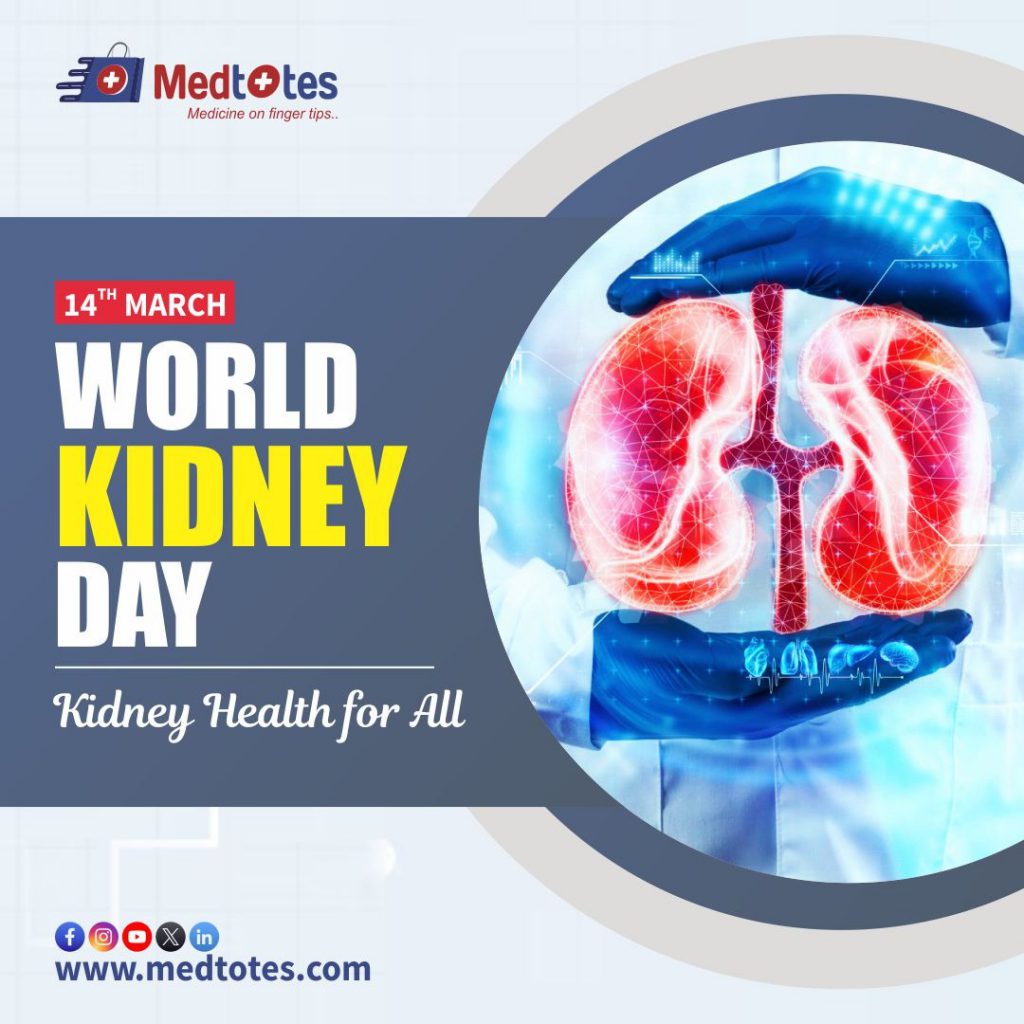I. INTRODUCTION
World Kidney Day is a global awareness campaign that promotes kidney health and reduces the impact of kidney disease. It is observed on the second Thursday of March each year and encourages maintaining a healthy lifestyle and regular check-ups. The theme changes annually, focusing on various aspects of kidney health and disease prevention. This initiative is crucial in promoting kidney health and encouraging people to prioritize their well-being. By educating the public about kidney disease risks and prevention steps, it helps reduce the burden of this serious health condition. By empowering individuals to make informed choices, World Kidney Day leads to healthier communities and better quality of life for all. It is essential to continue spreading awareness and advocating for kidney health, as its impact extends beyond the individual affected.

II. WHY KIDNEY HEALTH MATTERS
The kidneys are vital for the body, filtering waste, regulating blood pressure, producing red blood cells, and maintaining electrolyte balance. They are essential for proper functioning and preventing serious health complications. Common kidney issues include kidney stones, urinary tract infections, and chronic kidney disease, caused by factors like high blood pressure, diabetes, and certain medications. Regular check-ups, hydration, a balanced diet, and exercise are essential for monitoring kidney health. Neglecting kidney health can significantly impact overall well-being, as compromised function can lead to toxins building up in the body. By prioritizing kidney health and making lifestyle changes, individuals can protect themselves from kidney disease’s harmful effects and maintain their quality of life.
III. HOW TO MAINTAIN KIDNEY HEALTH
- 1. Stay Hydrated.
- 2. Balanced Diet.
- 3. Monitor blood pressure.
- 4. Control Blood Sugar.
- 5. Limit alcohol and caffeine.
- 6. Quit smoking.
- 7. Maintain a healthy weight.
- 8. Exercise regularly.
- 9. Avoid overusing painkillers.
- 10. Get regular check-ups.
- 11. Manage stress.
- 12. Avoid excessive protein intake.
- 13. Protect against UTIs.
- 14. Limit phosphorus intake.
- 15. Follow medical advice.
IV. SIGNS OF KIDNEY PROBLEMS
- 1. Changes in urination patterns: increased frequency of urination, difficulty urinating, painful urination, and blood in the urine (hematuria), foamy or bubbly urine.
- 2. Swelling (edema) in various parts of the body, commonly seen in the legs, ankles, or feet, face or hands.
- 3. Fatigue and weakness.
- 4. Shortness of breath.
- 5. High blood pressure (hypertension).
- 6. Persistent itching.
- 7. Loss of appetite.
- 8. Nausea and vomiting.
- 9. Metallic taste in the mouth or ammonia breath odor.
- 10. Difficulty concentrating. 11. Back pain, usually near the kidneys.
V. Conclusion
In conclusion. Identifying kidney problems early and seeking medical attention is crucial for preventing further damage and improving overall health. Maintaining a healthy lifestyle, including hydration, a balanced diet, regular exercise, and avoiding excessive alcohol and smoking, is also essential for preventing kidney problems in the first place.
